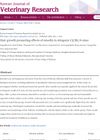 2 citations,
June 2016 in “Korean journal of veterinary research”
2 citations,
June 2016 in “Korean journal of veterinary research” Emodin may help hair grow similarly to minoxidil and could treat baldness.
9 citations,
July 2021 in “Journal of Medicinal Food” Lactobacillus paracasei HY7015 helps hair grow in mice.
 December 2022 in “Deleted Journal”
December 2022 in “Deleted Journal” Sheep wool keratin solution safely and effectively promotes hair growth.
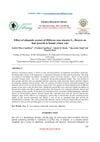 4 citations,
January 2011 in “Der Pharmacia Lettre”
4 citations,
January 2011 in “Der Pharmacia Lettre” Hibiscus flower extract slowed down hair growth in rats.
7 citations,
January 2001 in “PubMed” Vitamin B6 reduced hair loss in women with diffuse alopecia, but calcium pantothenate had no clear positive effect.
 September 2021 in “CRC Press eBooks”
September 2021 in “CRC Press eBooks” Alopecia areata incognita causes sudden hair thinning, responds well to steroids, and is more common in those with genetic hair loss conditions.
June 2016 in “Indian Journal of Pharmacy Practice” Stopping fluvoxamine can reverse hair loss caused by the drug.
 22 citations,
October 2019 in “International Journal of Nanomedicine”
22 citations,
October 2019 in “International Journal of Nanomedicine” The nanoparticles improved hair growth and enlarged hair bulbs.
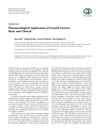 2 citations,
January 2015 in “BioMed Research International”
2 citations,
January 2015 in “BioMed Research International” Growth factor treatments are increasingly used in medicine but require more research to fully understand their mechanisms.
October 2019 in “DOAJ (DOAJ: Directory of Open Access Journals)” The nanoparticles effectively deliver herbal extract to enhance hair growth.
 9 citations,
March 2015 in “Journal of Microbiology and Biotechnology”
9 citations,
March 2015 in “Journal of Microbiology and Biotechnology” Ultra-high molecular weight poly-γ-glutamic acid may help promote hair growth.
 March 2023 in “Медицинский совет”
March 2023 in “Медицинский совет” COVID-19 may cause different types of hair loss, and the virus's effects on hair could help understand its impact on other body parts.
 January 2023 in “Voennaâ medicina”
January 2023 in “Voennaâ medicina” Hair loss in women can improve with iron and vitamin supplements if caused by iron deficiency.
 December 2020 in “Revista da Sociedade Portuguesa de Dermatologia e Venereologia”
December 2020 in “Revista da Sociedade Portuguesa de Dermatologia e Venereologia” The document's conclusion cannot be summarized because the content is not accessible or understandable.
 3 citations,
April 2014 in “Journal of Dietary Supplements”
3 citations,
April 2014 in “Journal of Dietary Supplements” CARI ONE helps start hair growth and makes hair follicles bigger and more numerous.
 1 citations,
November 2022 in “DOAJ (DOAJ: Directory of Open Access Journals)”
1 citations,
November 2022 in “DOAJ (DOAJ: Directory of Open Access Journals)” Male and female human hairs have different microscopic structures that can help in forensic analysis.
January 2006 in “Casopís lékar̆ů c̆eských”  July 2022 in “Al-Mağallaẗ al-ʻirāqiyyaẗ li-l-ṣaydalaẗ”
July 2022 in “Al-Mağallaẗ al-ʻirāqiyyaẗ li-l-ṣaydalaẗ” People with Alopecia Areata often have lower zinc levels, and more hair loss is linked to even lower zinc levels.
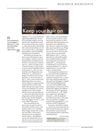 1 citations,
June 2017 in “Nature Reviews Immunology”
1 citations,
June 2017 in “Nature Reviews Immunology” Immune cells called Treg cells are essential for hair growth and regeneration.
 11 citations,
May 2009 in “Actas Dermo-Sifiliográficas”
11 citations,
May 2009 in “Actas Dermo-Sifiliográficas” Some treatments can help hair regrowth in alopecia areata, but none offer a cure, and effectiveness varies.
 May 2024 in “Portuguese journal of dermatology and venereology”
May 2024 in “Portuguese journal of dermatology and venereology” Reassurance and counseling are key in managing acute telogen effluvium, with supplements possibly offering a placebo effect.
 3 citations,
June 2017 in “Journal of Biomaterials Applications”
3 citations,
June 2017 in “Journal of Biomaterials Applications” Keratin extract from human hair was found to promote hair growth in mice.
 32 citations,
June 2015 in “PLOS ONE”
32 citations,
June 2015 in “PLOS ONE” Olive leaf compound oleuropein helps grow hair in mice.
 64 citations,
January 2015 in “BioMed Research International”
64 citations,
January 2015 in “BioMed Research International” Certain growth factors can promote hair growth in mice by activating hair growth-related proteins.
 91 citations,
April 2011 in “Journal of Ethnopharmacology”
91 citations,
April 2011 in “Journal of Ethnopharmacology” Polygonum multiflorum extract helps grow hair by activating certain hair growth signals in mice.
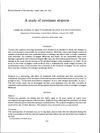 34 citations,
June 1990 in “British Journal of Dermatology”
34 citations,
June 1990 in “British Journal of Dermatology” Etretinate treatment changed hair growth patterns in many patients.
1 citations,
August 2005 in “Springer eBooks” Alopecia areata is an autoimmune disease with genetic links, treatable with certain medications, and can affect mental health.
 13 citations,
January 2015 in “Evidence-based Complementary and Alternative Medicine”
13 citations,
January 2015 in “Evidence-based Complementary and Alternative Medicine” Garlic chive extract helped mice grow more hair by increasing a specific growth factor.
 March 2011 in “European Urology Supplements”
March 2011 in “European Urology Supplements” The document concludes that a new biosensor can efficiently detect prostate cancer cells and that standardized referrals help find significant cancers effectively.
 March 2011 in “European Urology Supplements”
March 2011 in “European Urology Supplements” CEC levels may be a useful marker for predicting prostate cancer progression.
























